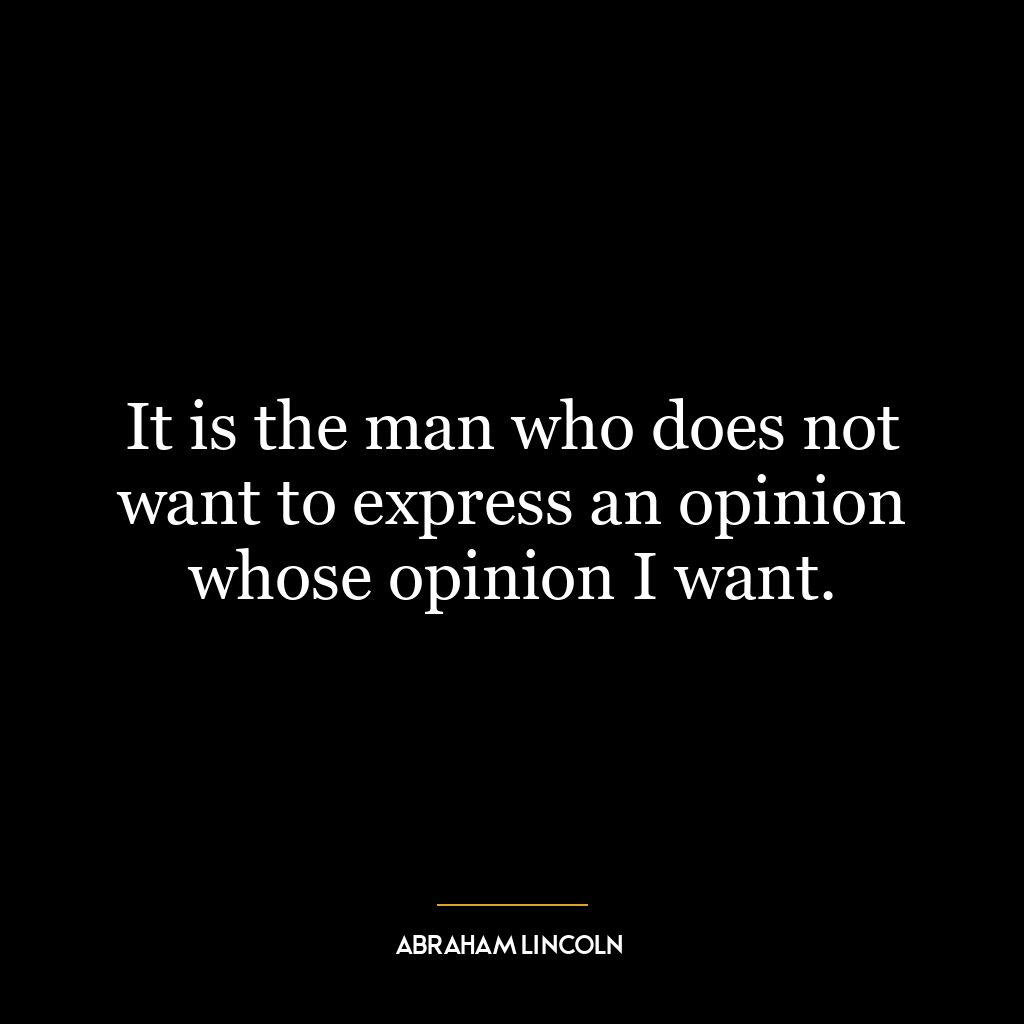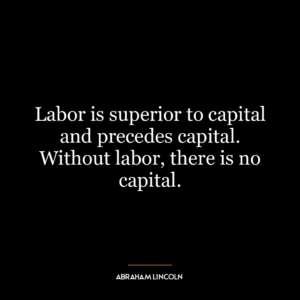It is the man who does not want to express an opinion whose opinion I want.
This quote suggests that the most valuable opinions often come from those who are initially reluctant to share them. This could be because these individuals are more thoughtful, introspective, and considerate in their perspectives. They may take time to process information and form an opinion, rather than impulsively reacting or conforming to popular sentiment. Their reluctance to voice an opinion might also stem from a modest, humble nature, or a desire to avoid conflict or attention—traits that often accompany wisdom and depth of thought.
The quote encourages us to seek out these quiet voices and listen to them. It implies that the opinions of those who are eager to express them are not always the most insightful or valuable. Those who shout the loudest are not necessarily the ones with the most to say.
In today’s world, this idea is particularly relevant. Social media platforms and 24-hour news channels are filled with people voicing their opinions. Yet, often, these are reactionary, superficial, or driven by a desire for attention or validation. The quieter voices—those who take time to think, reflect, and consider before they speak—are often drowned out. But these are the voices that we need to seek out and listen to. They often offer the most thoughtful, reasoned, and insightful perspectives.
In terms of personal development, this quote encourages us to value our own quiet introspection. It suggests that taking time to think and reflect before forming an opinion is a strength, not a weakness. It also encourages us to be discerning in who we listen to, seeking out those who offer thoughtful, considered perspectives rather than simply following the loudest voices.















